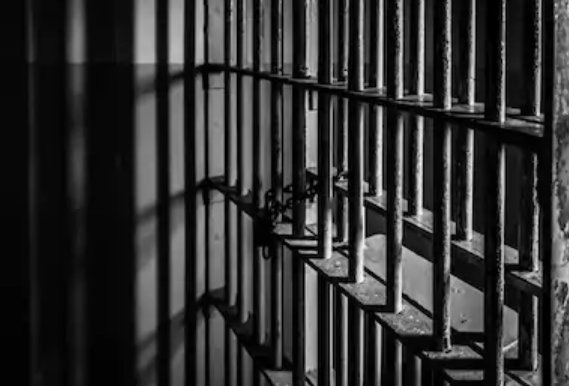As the novel coronavirus continues to spread and upend the daily operations of our country, many states and localities are in varying degrees of lockdown. This great social upheaval leaves us wondering what will happen to our nation’s most vulnerable populations: those who rely on hourly wages to pay for food and rent, those who live on the street and do not have a safe space to self-isolate, and our nation’s prison and jail populations.
According to public health officials and activists, prisons and jails are particularly at-risk to the spread of coronavirus, where social distancing isn’t an option. In an article in NPR, Robert Greifinger, a physician and consultant who worked on correctional health care systems for 25 years, describes risks such as crowding, poor ventilation, and security concerns that make it much harder to protect against the coronavirus than in normal populations. Others cite concerns over limited options for individuals experiencing incarceration to protect themselves. Hand sanitizer is often classified as contraband, and access to soap, hand towels, toilet paper, and tissues are often limited or lacking. In addition, those who are incarcerated already experience much higher rates of chronic medical conditions than the general public, even when controlling for demographic differences.
As a result of these heightened risks, public health officials are calling for a number of measures to protect individuals experiencing incarceration. In a March 5th memo to the Washington Association of Sheriffs & Police Chiefs, Marc Stern, who formerly served as the top medical officer for the Washington State Department of Corrections, offers a number of recommendations such as health screening of staff and arrestees, no-contact visitation or a switch to phone-visitation, and downsizing by releasing individuals who are not a threat to the community without requiring them to post bail and exploring alternatives to arrest for less serious crimes. These suggestions coincide with the recommendations that are being made across the country by national and local activist groups.
On March 18th, the national ACLU and 14 of its affiliates sent letters to federal, state, and local officials across the United States outlining a number of immediate actions actors in the criminal legal system can take to protect vulnerable prison populations. These letters address individuals such as governors, police, prosecutors, judges, sheriffs, and probation and parole boards. These recommendations include extending release opportunities for those eligible for probation/parole, considering commutation of sentences for medically infirm, elderly prisoners, or those whose sentences end soon, avoiding the use of cash bail, releasing individuals awaiting trial, delaying in-person hearings for open criminal cases, and more. Along similar lines, activists in Indiana, Illinois, and California have written letters to their Governors calling for commutation or medical furlough for medically infirm and elderly individuals.
Though all states have suspended visitation in some way, criminal justice response to COVID-19 has been varied. In Los Angeles, the Sheriff’s Department has taken measures to reduce the county’s jail population by close to 600 this week, reducing daily arrests from 300 to 60. New York City’s mayor’s office has asked the courts to release some elderly defendants from Riker’s Island. The Illinois Department of Corrections reports that they are passing out cleaning supplies to individuals incarcerated in their facilities. However, according to advocates, there is a large shortage, and individuals are not receiving these essential items. A more comprehensive list of measures states and cities are taking can be found in the resource page by the Justice Collaborative mentioned below.
Three Suggestions for How You Can Help:
- Sign this ACLU petition to President Trump and all state governors calling them to follow the advice of public health professionals by releasing vulnerable prison and jail populations.
- Look up what measures your state and city have taken to lessen the spread of COVID-19. Consider writing to local officials urging them to take measures like those mentioned above. The Justice Collaborative has a web page documenting the measures criminal legal agencies have taken across the country and includes different form letters to write to President Trump, governors, prosecutors, sheriffs, and county commissioners/city council members.
- Contact or look up the social media accounts of local advocacy groups. Local advocacy groups are oftentimes those with the best sense of actions that have already been taken, aid that is needed, and which local representatives are best to contact. See if any of them have taken COVID-19 related action. They may have recommendations of who you can contact or how you can donate. For example, the Northwestern Prison Education Program is taking monetary donations so they can deliver cleaning supplies to individuals incarcerated at Stateville Prison in Illinois.
The coronavirus situation is rapidly changing, and the same goes for the response of our country’s criminal legal systems. Incarcerated individuals and correctional staff have already begun to test positive and the number of illnesses will only heighten. For many of us, social distancing has increased the amount of free time we have on our hands. Though I wish I could provide more comprehensive information for each locality, I hope this post can help serve as a starting point for each of us to learn how to advocate for the more vulnerable in our communities.

- How Can Human-Centered Design Lead to Greater Social Impact? - January 27, 2021
- How is Transformative Justice Different from Restorative Justice? - December 30, 2020
- Expungement and Sealing: What Are They and Why Should States Expand These Forms of Record Relief? - November 13, 2020

Pingback: How to Help: the COVID-19 Pandemic - Novel Hand